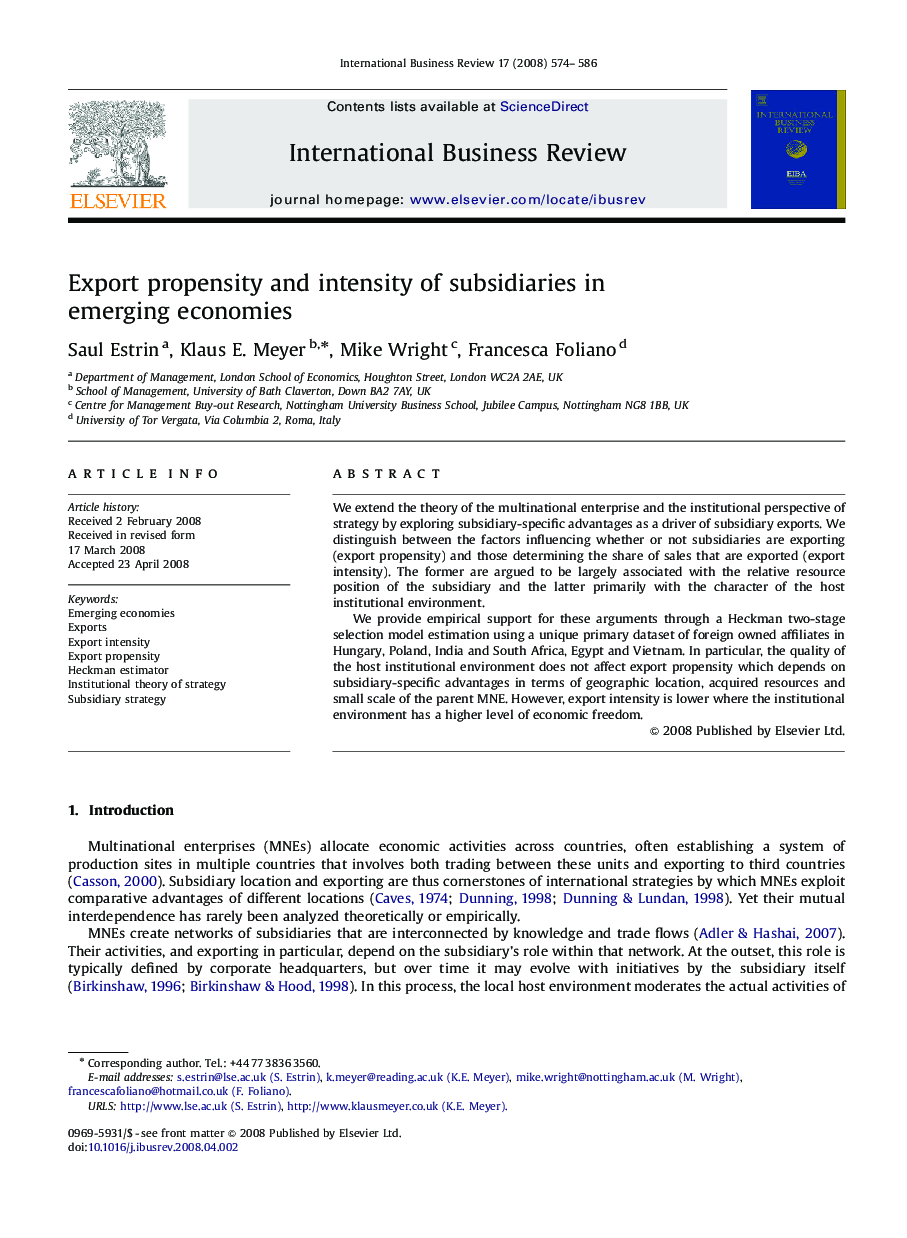| Article ID | Journal | Published Year | Pages | File Type |
|---|---|---|---|---|
| 1002676 | International Business Review | 2008 | 13 Pages |
We extend the theory of the multinational enterprise and the institutional perspective of strategy by exploring subsidiary-specific advantages as a driver of subsidiary exports. We distinguish between the factors influencing whether or not subsidiaries are exporting (export propensity) and those determining the share of sales that are exported (export intensity). The former are argued to be largely associated with the relative resource position of the subsidiary and the latter primarily with the character of the host institutional environment.We provide empirical support for these arguments through a Heckman two-stage selection model estimation using a unique primary dataset of foreign owned affiliates in Hungary, Poland, India and South Africa, Egypt and Vietnam. In particular, the quality of the host institutional environment does not affect export propensity which depends on subsidiary-specific advantages in terms of geographic location, acquired resources and small scale of the parent MNE. However, export intensity is lower where the institutional environment has a higher level of economic freedom.
